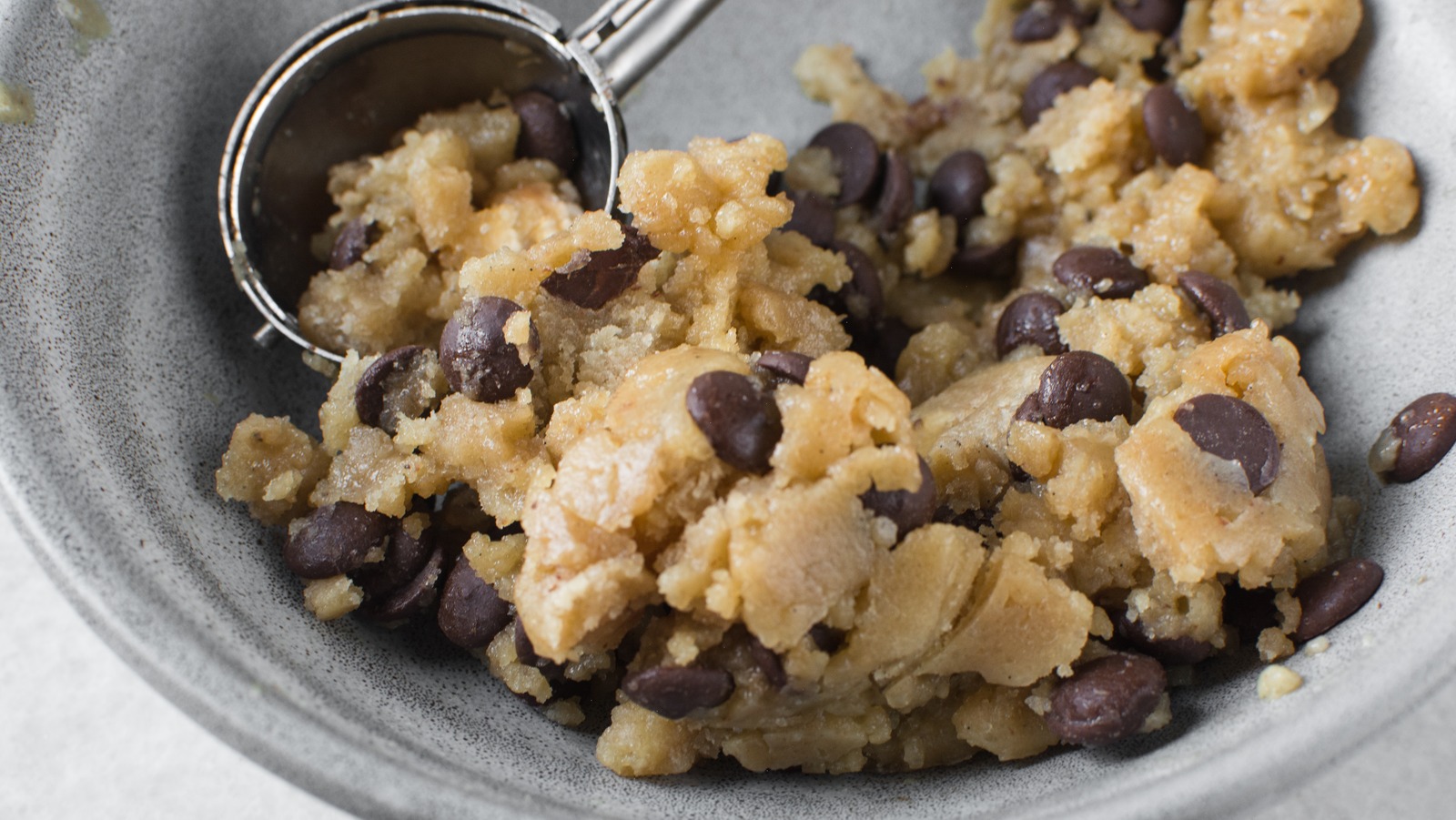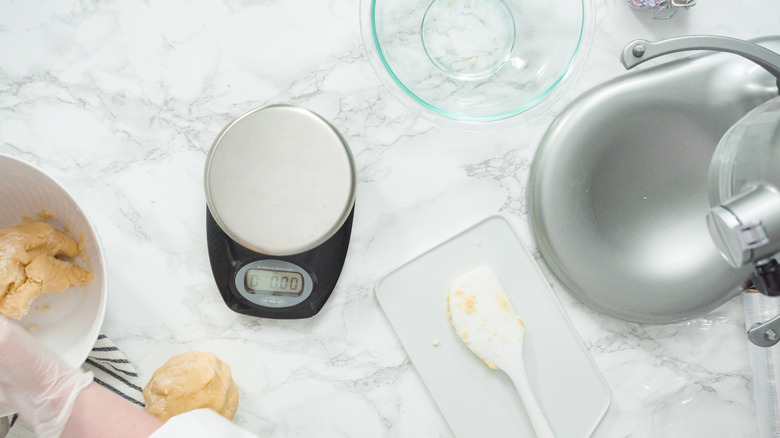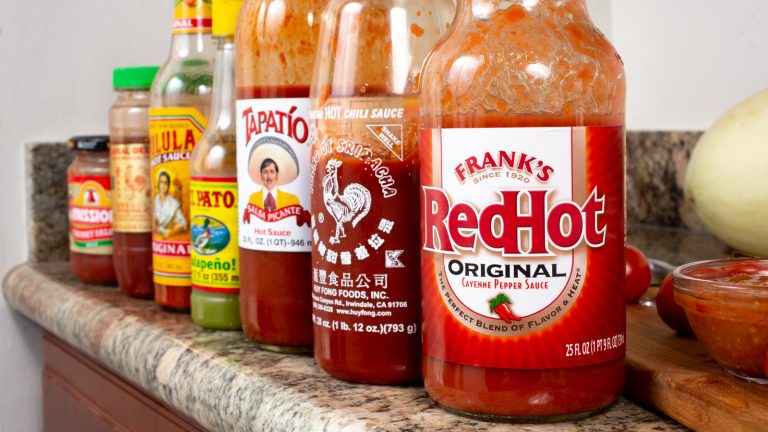We may receive a commission on purchases made from links.
Cookies are often one of the first things we learn how to bake growing up. They’re easy, comforting, and there’s really nothing like a tray of warm chocolate chip cookies or buttery shortbread to please a crowd. However, things can always go wrong in the kitchen, and one of the most common issues that bakers face is sticky dough. The good news is that hope is not lost if you find yourself with a goopy cookie mix.
A sticky cookie dough is usually caused by an imbalance in the ingredients. Basically, the measurements are probably a little off, or the butter has melted too much. “The dough probably has too much moisture and needs more dry ingredients in the batter,” said recipe developer Jerrelle Guy of the website Chocolate For Basil and the Dinner Ritual Substack, who also wrote the James Beard Award-nominated cookbook Black Girl Baking.
Guy told Tasting Table that all you need to do to help wet cookie dough is add some flour. “You can chill it in the fridge for 30 minutes to firm it up, or add a tablespoon or two of flour (or another ingredient like oats or almond flour) until it becomes manageable,” she said. A teaspoon of cornstarch can also help absorb the excess liquid, or you can use powdered sugar if you’re making sugar cookies. Add it slowly, sprinkling just a little at a time so that you don’t overdo it. “Be cautious not to add too much, as it can make cookies dry,” said Guy.
Use a scale to avoid sticky dough
An even easier way to firm up your dough is to refrigerate it for about 30 minutes. If you’re making butter cookies, you might want to stretch this to about an hour. Chilling most cookie doughs, sticky or not, will not only help cookies keep their shape, it will also lead to better flavor development and a chewier texture. Here are the types of cookie dough you shouldn’t refrigerate, but there are only a few.
To avoid running into the problem in the first place, make sure you’re measuring you ingredients by weight instead of volume. Guy advises using a kitchen scale any time you make cookies. “The best way to prevent sticky doughs is to just follow a well-tested recipe that uses weight measurements, and then use a kitchen scale when you measure,” she said.
You also want to make sure that your ingredients are cold and that you’re using the right type of flour that’s called for in the recipe. If there isn’t one listed, use all-purpose flour. Finally, make sure your kitchen isn’t too warm. If it is, the fridge trick might help you get out any “sticky” situations.






